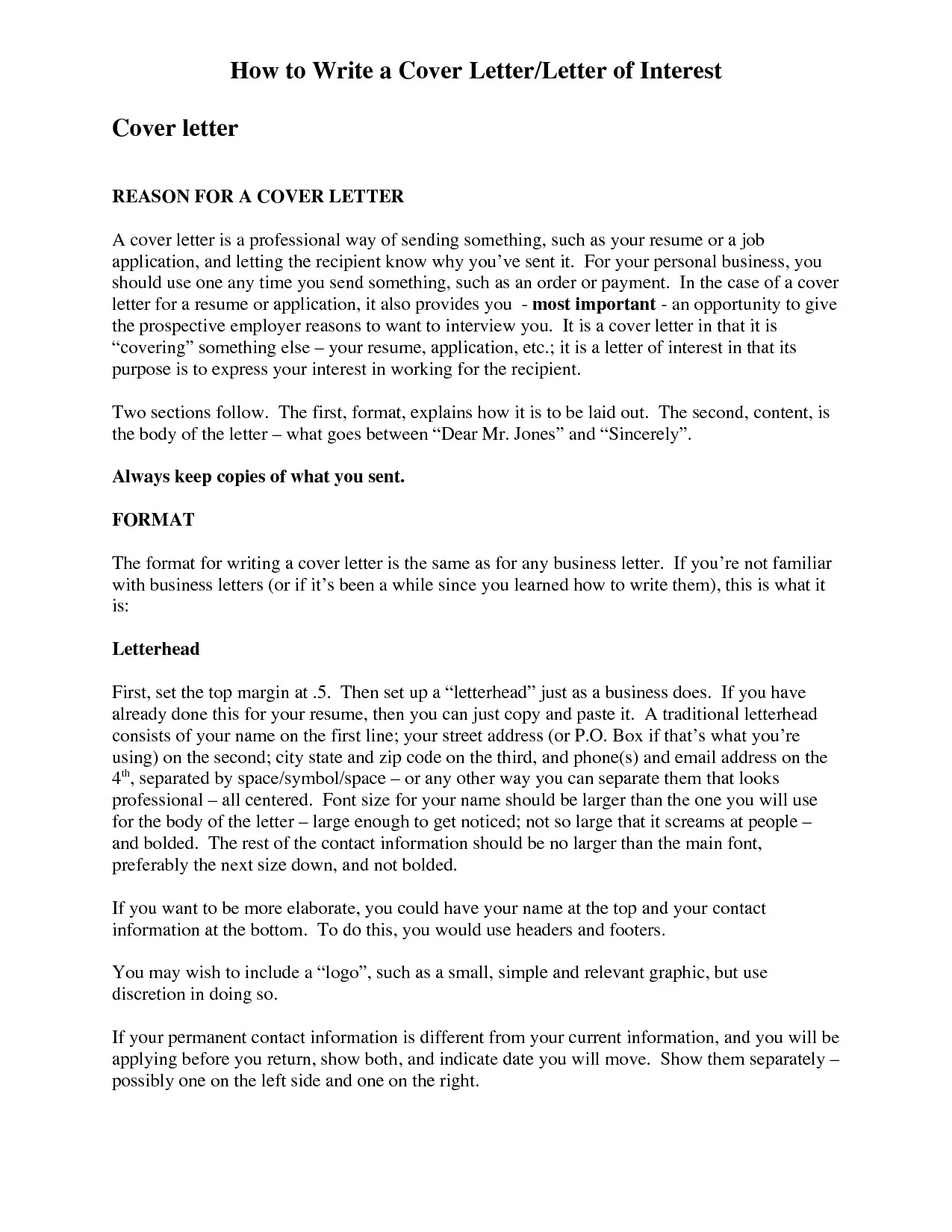What is a Job Interest Cover Letter
A job interest cover letter, unlike a cover letter for a specific job posting, is a proactive communication tool. It’s a way to express your interest in working for a company, even if they don’t have any open positions advertised. This type of letter allows you to introduce yourself, highlight your skills and experience, and explain why you’re a good fit for the organization. It’s a valuable tool for networking and exploring potential opportunities that might not be immediately apparent through traditional job boards. Writing a compelling job interest cover letter can significantly increase your chances of getting noticed by hiring managers and recruiters, even when there aren’t active openings.
When to Use a Job Interest Cover Letter
You should use a job interest cover letter when you’re particularly interested in working for a specific company, regardless of current job openings. This strategy is especially useful for targeting companies known for their innovation, culture, or industry leadership. It’s also beneficial when you have a specific skill set or experience that aligns with the company’s values or potential future needs. Another appropriate time to send a job interest cover letter is when you’ve identified a contact within the company, such as through networking or informational interviews. Tailoring your letter to a specific person can significantly increase its impact and chances of being read.
Researching the Company
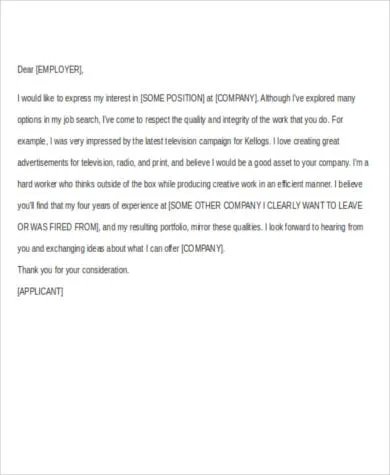
Before writing your job interest cover letter, conduct thorough research on the company. Visit their website, explore their social media profiles, and read industry news to understand their mission, values, products, services, and recent developments. Identify any current projects or initiatives that resonate with your skills and interests. Understanding the company’s culture, values, and strategic goals is critical to tailoring your letter effectively. The more you know about the company, the better you can articulate why you’re interested in working there and how you can contribute to their success. This information will also help you personalize your letter, demonstrating that you’ve taken the time to understand their business.
Finding the Right Contact
Identifying the appropriate contact person is crucial for your job interest cover letter to reach the right hands. Whenever possible, address your letter to a specific individual, such as a hiring manager or someone in a department that aligns with your career goals. Look for the contact information on the company’s website, on LinkedIn, or through your network. If you can’t find a specific name, consider addressing the letter to the hiring manager for the relevant department. Personalizing your letter by addressing it to a named contact shows initiative and increases the chances of your letter being taken seriously and acted upon. Generic greetings are less effective, so do your best to find a name.
Writing the Opening
Your opening paragraph should immediately grab the reader’s attention. Start by stating your interest in the company and the specific role or department you’re interested in. Briefly explain why you’re writing, mentioning your awareness of the company and its mission. If you were referred by someone, include that information at the beginning. Keep it concise and enthusiastic, setting a positive tone that reflects your genuine interest. Ensure your opening establishes the purpose of your letter clearly, making it easy for the recipient to understand why they should keep reading. The goal is to pique their interest and encourage them to learn more about your qualifications and aspirations.
Expressing Your Interest and Value
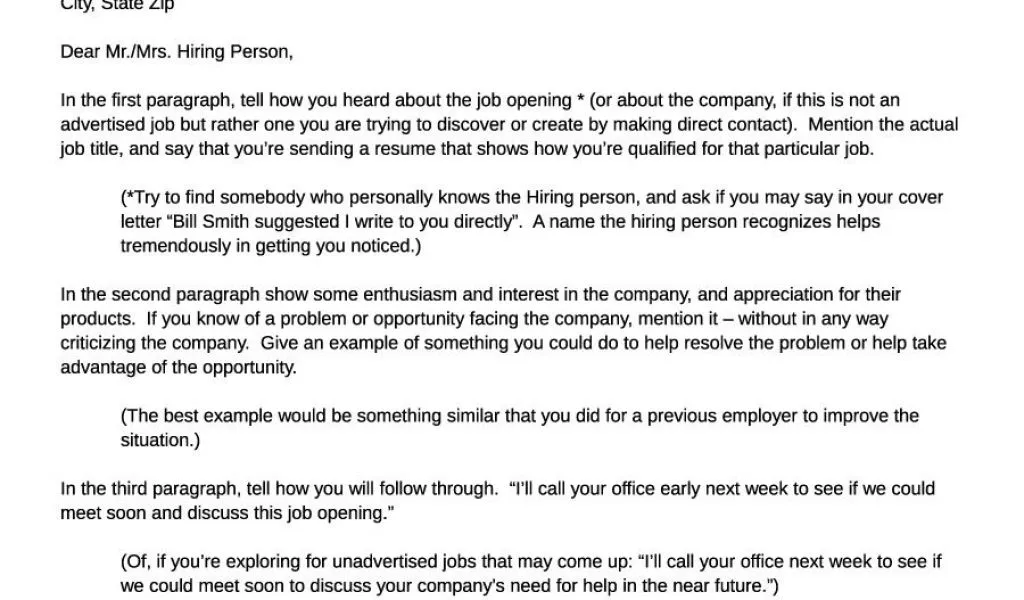
In the body of your cover letter, clearly express your interest in the company and the value you can bring to the organization. Explain why you’re drawn to their mission, values, or products. Describe how your skills, experience, and career goals align with their needs. Use specific examples to illustrate your accomplishments and contributions in previous roles. Focus on how you can solve problems, improve processes, or contribute to their success. Demonstrate enthusiasm and a genuine desire to contribute to their team. Show them why you’re a valuable asset and what you can offer if given the opportunity to join their ranks. Quantify your achievements whenever possible to provide concrete evidence of your capabilities.
Highlighting Relevant Skills and Experience
Carefully review your resume and identify the skills and experiences most relevant to the company and your target role. Highlight these in your cover letter, using specific examples to showcase your abilities. Use action verbs to describe your accomplishments and focus on results. Tailor your letter to reflect the company’s specific needs and requirements, demonstrating that you’ve researched their business and understand their priorities. Describe how you’ve used your skills to achieve specific results in your previous roles. Demonstrate your understanding of the job market by emphasizing the skills that are in demand. This is your chance to demonstrate what sets you apart from other candidates.
Demonstrating Company Knowledge
Show the hiring manager that you’ve done your homework by demonstrating your knowledge of the company. Mention specific projects, initiatives, or achievements that resonate with your interests and expertise. Express your understanding of their mission, values, and strategic goals. Demonstrate how your skills and experience align with the company’s needs and how you can contribute to their success. This shows that you’re serious about working for the company and that you’re not just sending out generic applications. By demonstrating that you understand their business and their place in the market, you increase your chances of making a positive impression and getting your letter read.
Formatting Your Letter
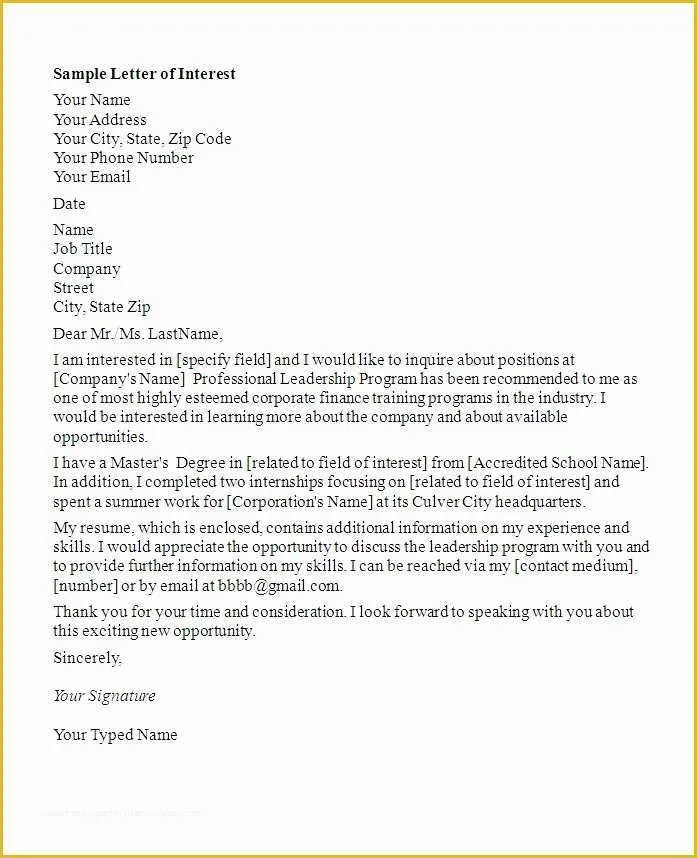
Keep your job interest cover letter concise and easy to read, aiming for no more than one page. Use a professional font, such as Times New Roman or Arial, with a font size of 11 or 12 points. Use standard business letter formatting, with your contact information at the top, the date, the recipient’s contact information, and a formal closing. Use clear headings, bullet points, and white space to break up the text and make it visually appealing. Maintain a professional tone and use proper grammar, spelling, and punctuation throughout the letter. A well-formatted letter reflects your attention to detail and professionalism.
Proofreading and Editing
Before sending your job interest cover letter, carefully proofread and edit it to ensure that it’s free of errors. Check for any typos, grammatical mistakes, or formatting issues. Read the letter aloud to catch any awkward phrasing or unclear sentences. Consider asking a friend, family member, or career counselor to review your letter and provide feedback. Proofreading is essential for making a positive impression on potential employers and demonstrating your attention to detail. A polished letter shows that you care about the details and take pride in your work.
Making a Strong Closing
End your job interest cover letter with a strong closing that reiterates your interest and expresses your eagerness to learn more. Thank the reader for their time and consideration. Include a call to action, such as expressing your willingness to provide more information or discuss potential opportunities. Provide your contact information and a professional signature. Avoid generic closings like “Sincerely” or “Thank you.” Instead, use a more personalized closing, such as “I look forward to hearing from you” or “Thank you for your time and consideration.” Close by expressing confidence and optimism about the prospect of joining the company.
Following Up
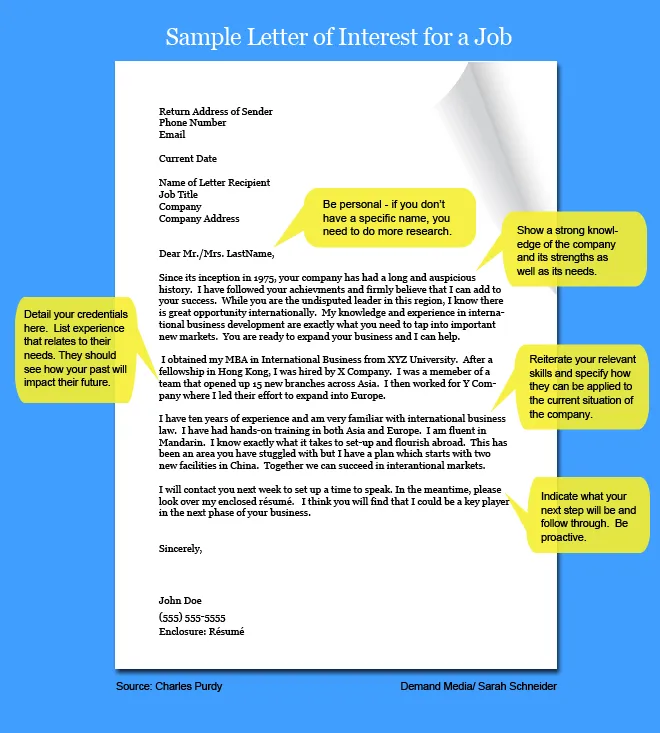
After sending your job interest cover letter, follow up with the recipient within a reasonable timeframe, usually one to two weeks. Send a brief email expressing your interest in the opportunity and reiterating your qualifications. Refer to your cover letter and express your willingness to answer any questions they might have. Following up demonstrates your continued interest and initiative, which can leave a positive impression on the hiring manager. It shows that you’re proactive and dedicated to securing a position within the company. If you don’t hear back after the initial follow-up, consider sending a second follow-up email or making a phone call to inquire about the status of your application.
